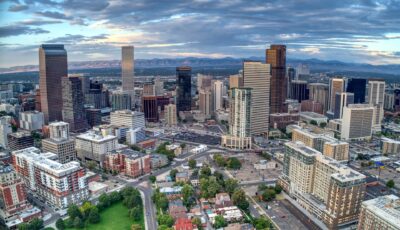How to Make Future Business Leaders Aware of Climate Change
By Ashley Wilson
 Reports on global warming have been damning over the years.
Reports on global warming have been damning over the years.
According to a special report issued by the Intergovernmental Panel on Climate Change (IPCC) in October 2018, we need to keep global temperature rise below the 1.5°C mark if we are to avert far-reaching climatic implications.
This means that by 2050, global net human-caused carbon dioxide (CO2) emissions should be at a “net zero.”
And how possible is that?
Well, hard choices have to be made as far as energy, transportation, land, cities, and industries are concerned.
And looking at all these sectors, one professional cohort ties them all up – business leaders.
Why Business Leaders?
Well, ever since human-driven climate change was officially reported, 71% of industrial emissions have stemmed from the top 100 energy companies.
And as far as US food and beverage companies go, the top 15 in this sector have contributed about 630 million metric tons of greenhouse gases, every year.
To put that into proper perspective, these 15 companies are emitting more greenhouse gases than Australia itself.
What We Need First Is Education
Traditional business education has never included the climate or any subject related to climate change in its curriculum.
But given the needs and environmental situation of the 21st century, topics on climate change should be on the syllabus.
And they already are.
Business schools such as Dartmouth and Colombia are already offering half-semester courses dedicated to climate change.
And despite top schools such as Harvard Business School not exclusively offering climate-focused classes, they still have other means of spreading the awareness among the cohort of future business leaders, using avenues such as academic centers that are focused on energy and climate change.
This is according to a study that was done on 13 top Business schools in the US.
How Can New Business Leaders Turn the Tide?
There are four key knowledge areas that future and even current business leaders need to learn in order to make the right choices for their business:
1. The Context and Drivers of Energy
Every business survives on energy, the most heavily dependent ones being companies operating in the energy sector.
Powering up machines, computers, and even servers for the Silicon Valley giants contributes a lot to the global carbon IV oxide footprint.
Thus, it is imperative that business leaders are made aware of key energy statistics, what drives them, and how they affect the climate.
2. Basic Science Literacy
Climate change is based on science, and there is no better way of appreciating it rather than understanding basic science literacy.
This literacy extends beyond the mere understanding of what the scientific climate debate is at the moment.
Rather, it also informs key resource allocation decisions that might have to be made, based on this data.
3. Energy Issues
This should be taught under finance and operations management courses. Energy issues are heavily tied to energy efficiency.
If you want to effectively reduce the carbon footprint from your business, then energy efficiency should be a concept at your fingertips.
One of the most common examples of energy efficiency is ride-sharing. Despite this initiative originally stemming from a social campaign, it has helped develop strong businesses such as Lyft.
Another case example is the use of cloud services.
How?
Well, moving your business to the cloud and using cloud-based services reduces the amount of energy your business will need to run a conglomerate of servers, hosted within your own data center.
This, effectively, slashes your carbon footprint significantly, especially if you rely heavily on tech.
4. Integrated System Thinking
Integrated system thinking means that you should, as a business leader, look beyond the climate change numbers.
You should be able to ask yourself – what’s the bigger strategic picture? And to do this, you might need to look well beyond your area of expertise.
A concrete example is a steady rise in renewable energy. The numbers at the moment show that renewable energy is the cheapest form of energy available.
Thus, with this data, you should get to a point where you can answer – is renewable energy competitive, yet, on cost alone?
How Will This Affect Business Operations and Production?
For starters, a more climate aware business leader equals a greener business.
Once future and current business leaders embrace the idea of climate change and appreciate the efforts needed from their end to tackle this problem, more climate-conscious decisions will be made.
An example is a move by 208 companies, so far, to join RE100.
Their pledge?
To be using 100% renewable energy in their operations by as early as 2025.
Notable companies such as Adobe and Swiss Re are some of the partners in this pledge, seeking to not only reduce the impact of climate change from a social and environmental standpoint but also offer business leadership as far as the green economy goes.
Sustainable Production is the New Goal
Companies will be trying to manufacture products through sound processes that reduce the overall negative environmental impact.
This means that the processes should demand as few resources as possible, thus conserving energy and natural resources in the process.
One related manufacturing process is lean manufacturing – a process where efficiencies are maximized, thus optimizing the use of resources.
Even better, lean manufacturing also helps reduce errors along the entire manufacturing process.
Green Resources Will Be More Preferred
Take energy generation for instance.
Instead of the conventional use of fossil fuels, renewable energy is experiencing a huge uptake, with some players in the construction industry powering up new structures using pure solar energy.
The Supply Chain Will Become More Advanced and Smarter
The supply chain significantly affects the overall carbon footprint your company produces.
Adding a bit of modern tech to it, such as IoT, as done by DHL for instance, can significantly reduce your carbon footprint.
This comes as a result of improvement in transport and logistics – key systems used in not only moving resources but also finished products from one point to the next.
The Bottom Line
Environmentally conscious business leaders are clearly whom we need for the next decade or even century.
Running a business in such unsure times, as far as the environment is concerned, can be achieved with the right education and conscious choices.
Optimizing manufacturing, using cloud-based solutions and incorporating IoT and AI into the business are just some ways to reduce the carbon footprint.
Ashley Wilson is working remotely as a content creator, writing about business and tech. She has been known to reference movies in casual conversation and enjoys baking homemade treats for her husband and their two felines, Lady and Gaga. You can get in touch with Ashley via Twitter.







